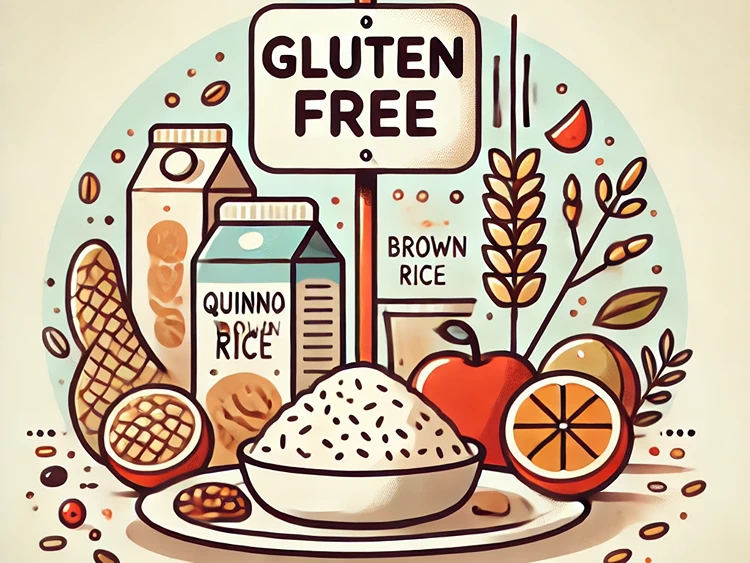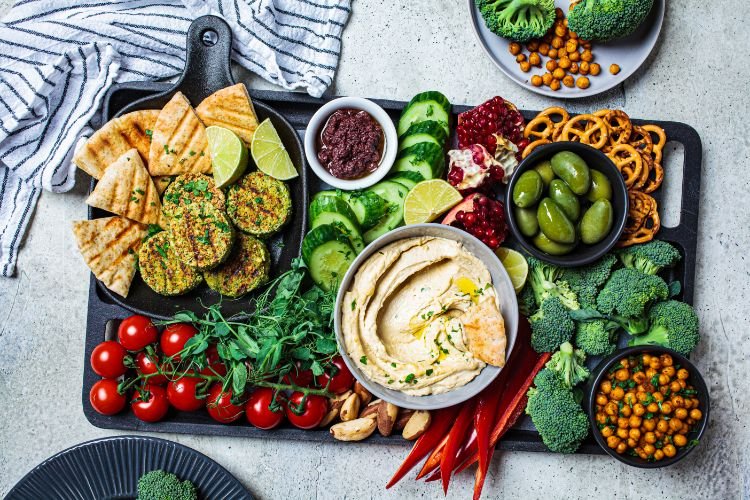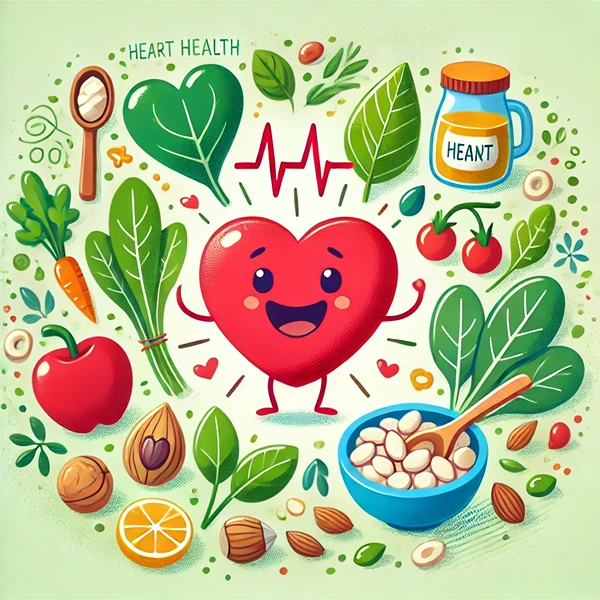
Understanding a Gluten-Free Diet: Is It Right for Your Health?
A gluten-free diet involves avoiding foods that contain gluten, a protein found in wheat, barley, and rye. For people with certain health conditions like celiac disease, a gluten-free diet is essential for managing symptoms and preventing complications. But gluten-free eating has also gained popularity among those without diagnosed gluten sensitivity, leading to debates about its necessity and benefits.
So, what does a gluten-free diet really entail, and who should consider adopting it? This article will help you understand whether a gluten-free diet is right for your health.
Why Do Some People Need to Avoid Gluten?
Gluten sensitivity isn’t just a fad; it’s a real issue for many people. There are three primary reasons someone might need to avoid gluten:
- Celiac Disease: An autoimmune disorder where consuming gluten leads to damage in the small intestine.
- Non-Celiac Gluten Sensitivity: Individuals experience symptoms similar to celiac disease but without the intestinal damage.
- Wheat Allergy: A reaction to proteins found in wheat, which may or may not include gluten.
For those with these conditions, consuming gluten can lead to serious health issues. But what about people who don’t have any of these diagnoses? Can a gluten-free diet still be beneficial?
Is a Gluten-Free Diet Healthy for Everyone?
The idea of a gluten-free diet has been widely promoted as a healthier option, but is it truly necessary for everyone? The answer largely depends on your individual health needs and goals.
For those with celiac disease or gluten sensitivity, eliminating gluten is essential. However, for the general population, the benefits are less clear. Some people report feeling better on a gluten-free diet, but this might be due to cutting out processed foods rather than gluten itself.
While a gluten-free diet isn’t inherently healthier, it can be part of a balanced diet when done correctly. But there are also potential downsides to consider, such as nutrient deficiencies and the higher cost of gluten-free products.
Potential Downsides of a Gluten-Free Diet
While a gluten-free diet can be beneficial for those with specific health conditions, it’s not without its challenges. Here are some potential downsides to consider if you’re thinking about going gluten-free:
- Nutrient Deficiencies: Many gluten-containing foods, like whole grains, are rich in essential nutrients such as fiber, iron, and B vitamins. By eliminating these foods, you may miss out on important nutrients unless you find suitable substitutes.
- Higher Costs: Gluten-free products often come with a higher price tag. Whether it’s bread, pasta, or snacks, you’ll likely pay more for the gluten-free version, which can add up over time.
- Limited Food Choices: Following a gluten-free diet can limit your food options, especially when dining out or traveling. You may find it challenging to find gluten-free meals that are both nutritious and satisfying.
Helpful Hint:
If you’re considering a gluten-free diet, make sure to plan your meals carefully. Focus on naturally gluten-free foods like fruits, vegetables, lean proteins, and gluten-free grains such as quinoa and rice. This way, you can ensure you’re getting the nutrients you need without relying heavily on processed gluten-free products.
Who Should Consider a Gluten-Free Diet?
So, who should really be thinking about a gluten-free diet? Aside from those with celiac disease, non-celiac gluten sensitivity, or a wheat allergy, there are a few other groups that might benefit from reducing or eliminating gluten:
- People with IBS (Irritable Bowel Syndrome): Some individuals with IBS find that cutting out gluten helps manage their symptoms, even if they don’t have a formal diagnosis of gluten sensitivity.
- Individuals with Autoimmune Disorders: Certain autoimmune conditions, like Hashimoto’s thyroiditis, may improve with a gluten-free diet, although more research is needed.
- Those Experiencing Unexplained Digestive Issues: If you frequently experience bloating, gas, or other digestive discomfort without a clear cause, a gluten-free trial might help identify if gluten is the culprit.
Stats:
According to a study published in the journal *Gastroenterology*, up to 30% of Americans are actively trying to reduce or eliminate gluten from their diets, even though only about 1% of the population has celiac disease.
How to Start a Gluten-Free Diet
If you’ve decided that a gluten-free diet might be right for you, it’s important to approach it thoughtfully. Here are some steps to help you get started:
- Consult with a Healthcare Provider: Before making any major dietary changes, it’s a good idea to talk to a doctor or dietitian, especially if you suspect you have a gluten-related disorder.
- Read Food Labels Carefully: Gluten can hide in unexpected places, so learning to read labels is crucial. Look for products labeled “gluten-free,” but also be aware of ingredients like wheat, barley, rye, and their derivatives.
- Focus on Whole Foods: Naturally gluten-free foods like fruits, vegetables, meat, fish, eggs, and dairy should be the foundation of your diet. Gluten-free grains like rice, quinoa, and oats (if certified gluten-free) are also good options.
- Experiment with Gluten-Free Alternatives: Gluten-free versions of bread, pasta, and baked goods are widely available. Experiment with different brands to find ones you enjoy, but try not to rely too heavily on these processed foods.
Starting a gluten-free diet doesn’t have to be overwhelming. By focusing on whole, naturally gluten-free foods and seeking support from a healthcare provider, you can make the transition smoothly and sustainably.
Are Gluten-Free Products Healthier?
One common misconception is that gluten-free products are automatically healthier. However, this isn’t always the case. Many gluten-free packaged foods are highly processed and can be just as high in sugar, fat, and calories as their gluten-containing counterparts.
It’s important to approach gluten-free products with the same level of scrutiny you would apply to any processed food. Just because something is labeled gluten-free doesn’t mean it’s good for you. Always check the ingredients list and nutrition facts to ensure you’re making healthy choices.
Common Gluten-Free Grains and Their Nutritional Benefits
| Gluten-Free Grain | Key Nutrients | Health Benefits |
|---|---|---|
| Quinoa | Protein, Fiber, Magnesium, Iron | Supports muscle growth, aids digestion, and improves heart health |
| Brown Rice | Fiber, Selenium, Manganese | Helps in weight management, boosts immune system, and reduces inflammation |
| Buckwheat | Fiber, Magnesium, Antioxidants | Promotes heart health, lowers blood sugar, and supports digestion |
| Millet | Protein, Fiber, Phosphorus | Supports bone health, improves digestion, and controls blood sugar levels |
Helpful Hint:
When shopping for gluten-free products, prioritize items made with whole, nutrient-dense ingredients. Look for products that are naturally gluten-free and contain minimal added sugars, unhealthy fats, and preservatives.
Common Myths About Gluten-Free Diets
As with any popular diet, there are plenty of myths and misconceptions surrounding gluten-free eating. Let’s clear up some of the most common ones:
- Myth 1: Gluten-Free Equals Healthy: As mentioned earlier, gluten-free doesn’t automatically mean healthier. Gluten-free junk food is still junk food.
- Myth 2: Gluten-Free Diets Lead to Weight Loss: While some people lose weight on a gluten-free diet, it’s usually due to cutting out processed foods rather than gluten itself.
- Myth 3: Everyone Should Avoid Gluten: Unless you have a specific health condition, there’s no need to avoid gluten. Whole grains that contain gluten can be part of a healthy diet.
Understanding these myths can help you make more informed choices about whether a gluten-free diet is right for you.
FAQs
Wrapping Up
Understanding whether a gluten-free diet is right for your health requires careful consideration of your individual needs and circumstances. For those with celiac disease or gluten sensitivity, avoiding gluten is essential for maintaining good health. However, for others, the decision to go gluten-free should be based on clear health goals and a commitment to a balanced, nutrient-rich diet.
While a gluten-free diet isn’t inherently healthier, it can be part of a healthy lifestyle when done correctly. Focus on whole, naturally gluten-free foods and be mindful of the potential downsides, such as nutrient deficiencies and higher costs. If you’re considering this dietary change, it’s always a good idea to consult with a healthcare provider to ensure you’re making the best choice for your health.
Whet



